- ‘Lies, damned lies etc…’ - 13th February 2026
- Missing in action - 12th February 2026
- Travel news again - 11th February 2026

After examining the changes in attitudes towards women and gay people since he started in journalism 36 years ago, here our Editor Phil Parry looks at why Wales may have performed better than England in combating the coronavirus/Covid-19 pandemic.
In the past he has also described how he was helped to break into the South Wales Echo office car when he was a cub reporter, recalled his early career as a journalist, the importance of experience in the job, and making clear that the ‘calls’ to emergency services as well as court cases are central to any media operation.

He has also explored how poorly paid most journalism is when trainee reporters had to live in squalid flats, the vital role of expenses, and about one of his most important stories on the now-scrapped 53 year-old BBC Cymru Wales (BBC CW) TV Current Affairs series, Week In Week Out (WIWO), which won an award even after it was axed, long after his career really took off.
Phil has explained too how crucial it is actually to speak to people, the virtue of speed as well as accuracy, why knowledge of ‘history’ is vital, how certain material was removed from TV Current Affairs programmes when secret cameras had to be used, and some of those he has interviewed.
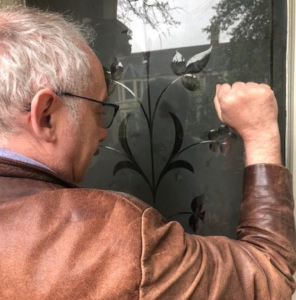
Earlier he outlined why investigative journalism is needed now more than ever although others have different opinions, and how information from trusted sources is crucial at this time of crisis.
It appears Wales could have done better than England in dealing with coronavirus/Covid-19.
The Prime Minister, Boris Johnson, has been assailed by problems (making an extraordinary U-turn over a contact-tracing app a few days ago), led the UK into lockdown long after most other developed countries, and it now has the highest overall death rate of all of them.

Italy went into full lockdown on March 9, Denmark on March 11, Spain on March 14 and France on March 17.
The UK followed only on March 23.
It is believed that if we had entered lockdown a week earlier, around 25,000 lives might have been saved.

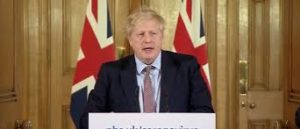
This is more Britons than have died in any event since the Second World War.
Testing too has not been good, yet the UK Government had described testing for the virus as a “game changer”.
Despite the urging of scientists and the World Health Organisation (WHO), by the middle of April the UK was still carrying out just 12,000 tests a day, compared with 44,000 in Italy and 51,000 in Germany.
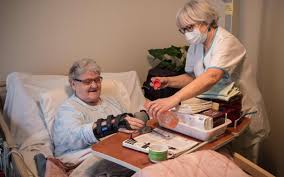
Because most testing was reserved for hospitals, care homes struggled to find out which of their residents and staff were infected.
Competition for Personal Protective Equipment (PPE) was fierce, so they also struggled to get the kit they needed to protect their workers.
Meanwhile the First Minister of Wales (FMW) Mark Drakeford, is reckoned to have had a ‘good’ lockdown (if such a thing is possible!) and the rules are stricter than in England.
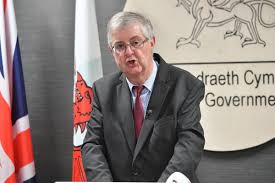
In the past Dr Drakeford has said: “People will be allowed to meet in gardens but I do want to be really clear. This is permission for people to do it, it’s not an invitation.
“So it’s permission for people to do something which is very important but people should still be sensible about it, do it only when it’s necessary, stay apart from one another.
“Running to people’s houses, sitting in gardens close together, having a beer and it all breaking down – that’s definitely not what we are proposing in Wales.”

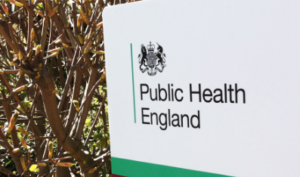
It is not simply the Welsh political leadership which has apparently been better – public health bodies too have differed.
The reaction of officials at Public Health England (PHE) has been seen widely to have been a failure.
At one point, they could have used local authorities’ experience in contact tracing for things like sexual health and food-borne diseases.

Yet that was slow to happen.
Local authorities were left confused about whether to contact another regulator, or PHE about testing in care homes.
A local leader characterised their response to the crisis as “carry on covid”.
This was the unequivocal retort of The Economist: “Public Health England, which was responsible for testing and tracing, failed”.
Public Health Wales (PHW) meanwhile has worked effectively with local authorities, and delivered clear lockdown messages.
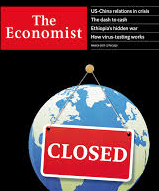
PHW officials tell people:
Stay local and keep Wales safe:
- always observe social distancing
- wash your hands regularly
- if you are meeting one other household, stay outdoors and stay local
- work from home if you can
Stay at home if you or someone you live with has either:
- a high temperature
- a new, continuous cough
- loss of smell or taste (anosmia)
Anyone can spread the virus
 It seems that spreading the news that Wales may too have done a bit better than England during this extraordinary time could also be important.
It seems that spreading the news that Wales may too have done a bit better than England during this extraordinary time could also be important.
Perhaps the promised inquiry into all of this afterwards might highlight that fact…
If you need something to keep the children entertained during these uncertain times (in Welsh) try Ffwlbart Ffred about the amusing stories of Ffred and his pet.









